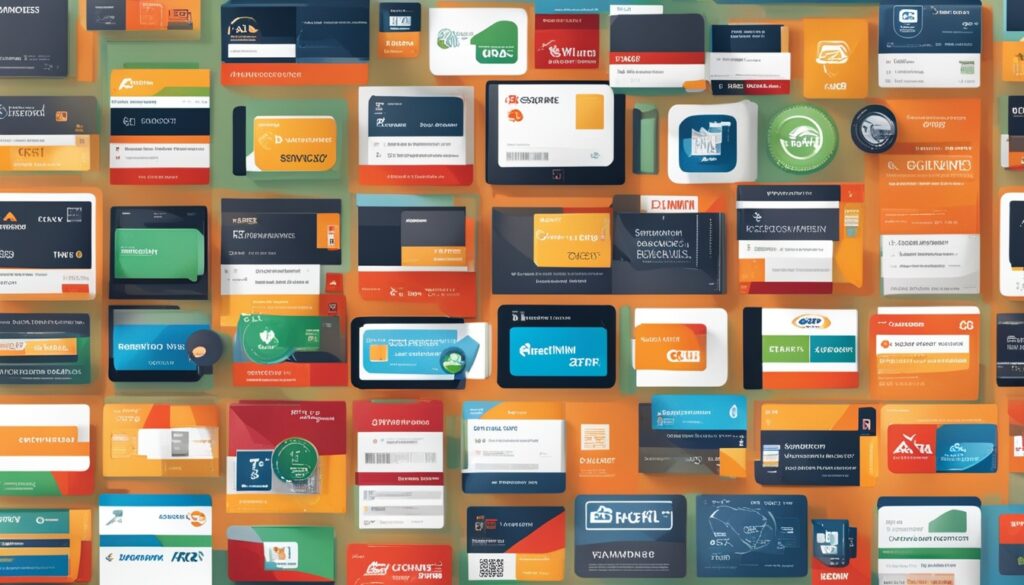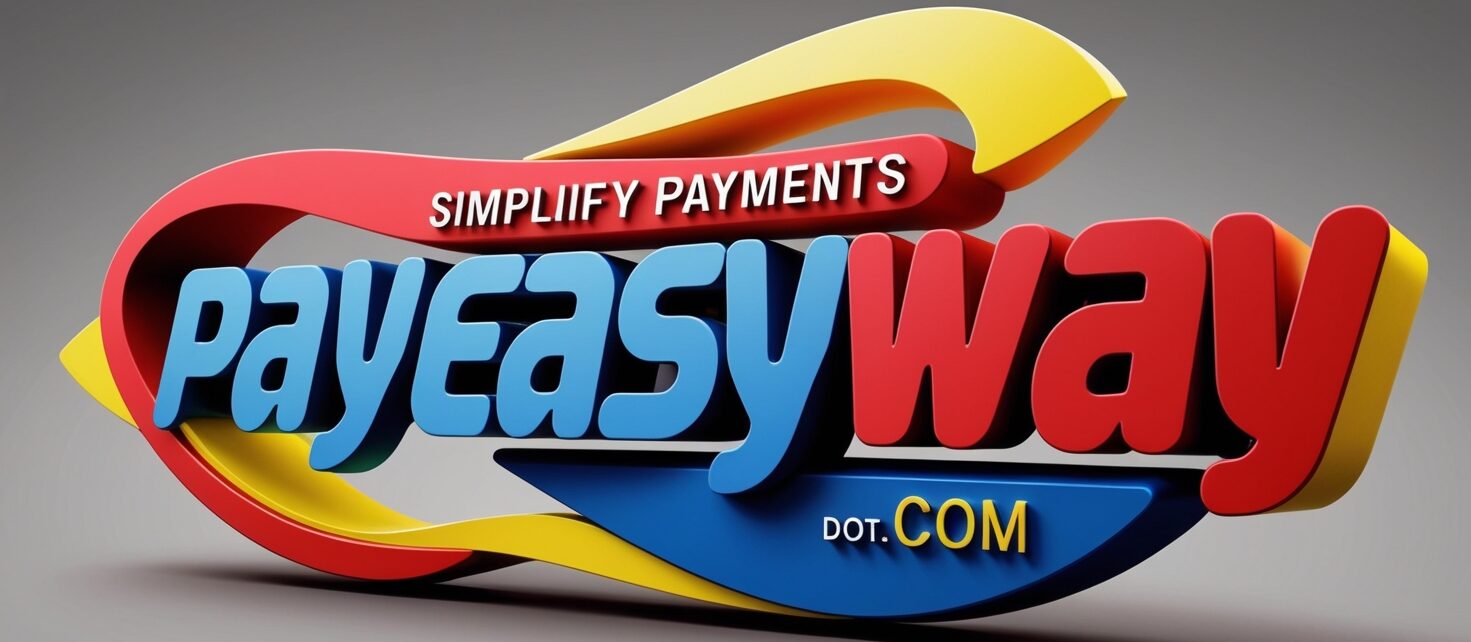In today’s fast-changing business world, small businesses need low-cost payment solutions. Technology keeps advancing, making affordable payment options a must. These options help with both money issues and business needs.
Small businesses have many choices for payment processing. They can pick from mobile, online, or in-person options. With more people wanting flexibility and ease, it’s key for businesses to use cost-effective payment services.
The payment processing market is growing fast. This means more budget-friendly options for both new and old businesses. To find the right payment solutions, look at strategies and insights that fit your business and customer needs. Learn more about affordable payment solutions here.
Key Takeaways
- Understanding the importance of low-cost payment solutions for small businesses.
- Benefits of adopting budget-friendly payment options to enhance customer satisfaction.
- Staying abreast of advances in payment technology for better financial management.
- Evaluating various affordable payment solutions based on unique business needs.
- The impact of consumer expectations on payment processing choices.
Understanding Payment Processing for Small Businesses
Payment processing for small businesses means using different methods to take in customer payments. It involves merchants, payment gateways, and customer banks. Now, we have many ways to pay, both old and new.
For small businesses, it’s key to know these options to make payments smooth. You can pick from mobile wallets, credit card processing, and online payments. Each has its pros and cons, so it’s important to think about what your business needs.
Using a mix of old and new payment ways can make things easier for everyone. It helps businesses run better and keeps customers happy. Efficient payment processing makes things smoother for both sides.
Knowing about payment options helps small businesses make smart choices. This can make their finances stronger and help them grow.
The Importance of Choosing the Right Payment Solution
Choosing the right payment solutions is key for small businesses. It affects cash flow, customer loyalty, and growth. Knowing critical factors for payment processing helps small business owners streamline their operations.
Small businesses face challenges like high fees and complex integration. Owners must look at their needs and sales volume to pick the best options. Affordable small business payment processing can help solve these problems, letting businesses use their resources better.
Choosing the right payment solution makes everyday transactions easier. It improves customer experience and ensures smooth payments. Here is a table with key points to consider when picking payment solutions:
| Factor | Importance | Possible Issues |
|---|---|---|
| Transaction Fees | High fees can eat into profit margins | May lead to hidden costs |
| Integration | Simplifies process if smooth | Complex systems can cause payment delays |
| Customer Support | Quick resolution of issues | Poor support may frustrate customers |
| Security Features | Protects sensitive information | Inadequate security risks data breaches |
For small businesses looking into payment options, understanding these points helps make better choices. More details can be found in the terms of use for different payment solutions.

Overview of Affordable Payment Solutions
Small businesses often look for affordable payment gateways that fit their budgets. They search for cost-effective payment solutions and now consider both old and new payment systems. With more online sales, there’s a big need for cheap yet efficient ways to pay.
When picking competitive small business payment solutions, several things matter. Fees, ease of use, and how well it fits with other systems are key. Businesses want inexpensive payment processing that’s safe and works well.
The table below shows some top affordable payment solutions. It looks at their costs and what they offer:
| Payment Solution | Monthly Fee | Transaction Fee | Features |
|---|---|---|---|
| Square | None | 2.6% + 10¢ | Easy setup, no monthly fees, POS system available |
| Stripe | None | 2.9% + 30¢ | Customizable API, excellent for online sales |
| PayPal | None | 2.9% + 30¢ | Widely recognized, simple checkout integration |
| Helcim | None | 1.95% to 2.85% | Transparent pricing, ideal for high-volume sales |
Choosing the right payment solution is crucial for a small business’s success. It’s important to look at all the options carefully.
Key Features to Consider in Payment Solutions
When evaluating payment processors, small businesses should look at several payment solutions features. Keeping transactions secure is top priority. This ensures customer data stays safe, building trust and keeping customers coming back.
It’s also key to have a system that’s easy to use. A simple interface makes buying and selling smoother for everyone involved. This ease of use is a big plus for both the business and its customers.
Being clear about costs is crucial when picking budget-friendly merchant services. Businesses need to know the fees for each transaction. This helps them plan their budgets better. Plus, having reliable customer support is a game-changer, especially during busy times or when solving payment issues.

Offering different payment options makes customers happier. Choices like credit cards, electronic transfers, and mobile payments cater to different needs. These essential payment processing tools make buying easier, which can increase sales. By focusing on these features, businesses can match their payment solutions with how they work and what their customers want.
Explore more on payment solutionsfor small businesses
Low-Cost Payment Solutions for Small Businesses
Choosing the right payment solutions for small businesses means knowing about common transaction costs. Payment processors charge fees that are a percentage of each sale, plus some fixed fees. These fees can really affect how much money a business makes. So, it’s important for businesses to look closely at these fees before deciding.
Common Transaction Fees and Costs
Most payment processors have a standard fee plan that includes different charges. Here are some fees you might see:
- Percentage fee per transaction, often ranging from 2.5% to 3.5%.
- Monthly service fees that can vary based on the provider.
- Chargeback fees, incurred when a customer disputes a charge.
- Setup fees, which some processors might charge for initial onboarding.
Value of Transparency in Pricing
Transparent pricing in payment processing is very important. Businesses should look for providers that show all possible fees upfront. Knowing about any hidden costs helps with budgeting and planning. Options like affordable credit card processing services show their costs clearly, helping small businesses avoid unexpected charges.
https://www.youtube.com/watch?v=4SUo58kSSEo
By looking at different processors and their fees, businesses can make smart choices. These choices help with growth and staying in business in today’s tough market.
| Payment Processor | Transaction Fee % | Monthly Fee | Chargeback Fee |
|---|---|---|---|
| Square | 2.6% + 10¢ | None | $15 |
| Stripe | 2.9% + 30¢ | None | $15 |
| Payment Depot | 0.5% + $0.15 | $49 | $15 |
| Helcim | 2.0% + 0¢ | None | $25 |
Top Low-Cost Payment Processors
Choosing the right payment processor can greatly affect your business’s operations and costs. Here are some top low-cost payment processors for small businesses.
Square: A Popular Choice for Small Businesses
Square is a top pick for its flat-rate pricing and no monthly fees. It’s great for small stores. The easy-to-use interface helps businesses manage sales and accept various payments smoothly.
Stripe: Best for Online Transactions
Stripe is a leader in e-commerce with clear pricing and easy online integration. It’s perfect for online businesses. Stripe offers features that meet the needs of entrepreneurs looking for low-cost credit card processing.
Helcim: Ideal for High-Volume Sales
Helcim offers competitive pricing that benefits companies with lots of transactions. Business owners will like the cost-saving features. They help manage expenses while keeping service quality high.
PayPal: Widely Recognized Option
PayPal is a trusted name for its easy payment processing. It’s recognized by both businesses and customers. This makes it a key player in the payment processing world.

For more info on these options and other choices, check out this resource. It talks about low-cost payment processors for different business sizes and needs.
| Processor | Main Advantage | Best For |
|---|---|---|
| Square | Flat-rate pricing, no monthly fees | Brick-and-mortar stores |
| Stripe | Seamless online integration | E-commerce businesses |
| Helcim | Competitive pricing for high volume | High-volume sales |
| PayPal | Instant recognition and ease of use | General payment processing |
Cost-Effective Payment Processing Services
Small businesses look for payment processing services that save money and boost profits. It’s key to check for hidden fees that aren’t easy to see. Some services show just the basic cost but hide extra charges, affecting a business’s finances. Knowing the full cost of payment processing is vital for staying competitive.
Evaluating Hidden Fees
Looking closely at pricing can reveal unexpected costs. Businesses should ask for a clear list of fees, including:
- Transaction fees
- Monthly statement fees
- PCI compliance fees
- Chargeback fees
- Settlement fees
Understanding these fees helps with transparency and finding the best payment processing option for your needs.
Long-term Contracts vs. Flexibility
Long-term contracts might seem cheaper at first but can limit future changes. Small businesses should think about the long-term effects of being locked in with one provider. Being able to change terms, switch providers, or adjust services is key as your business grows and changes. Choosing payment processing services means balancing cost and flexibility to make the best choice.
Businesses that value transparency and flexibility in payment processing are more likely to succeed in a competitive market.
| Provider | Contract Length | Hidden Fees | Flexibility |
|---|---|---|---|
| Provider A | 1 year | Yes | Limited |
| Provider B | No contract | No | High |
| Provider C | 2 years | Yes | Medium |
Mobile Payment Solutions: Trends and Benefits
Mobile payment solutions are now a big part of retail, thanks to recent global events. People want things to be quick and easy, leading to new trends in payments. These trends are making mobile transactions more popular.
More people are using contactless payment devices. They like quick checkout options that save time and make shopping better. This change meets what customers want and helps with health and safety rules that businesses follow.
Mobile payment processing has many benefits. Stores that use these solutions often see:
- Improved customer satisfaction from faster transactions.
- Enhanced sales tracking with detailed analytics from payment platforms.
- Increased transaction security thanks to encryption and tokenization.
Small businesses can gain from mobile payment options too. They can build customer loyalty and get more repeat business. By using the latest in mobile payments, businesses stay up-to-date with what customers want. They also get a stronger market position.
| Feature | Mobile Payment Solutions | Traditional Payment Methods |
|---|---|---|
| Speed of Transaction | Very Fast | Moderate |
| Customer Experience | High Satisfaction | Moderate Satisfaction |
| Sales Tracking | Comprehensive Analytics | Basic Reporting |
| Security | High (Encryption) | Standard (Vulnerable to Theft) |

Success Stories of Small Businesses Using Affordable Solutions
Many small businesses have changed for the better with affordable payment solutions. These systems have made their work easier, cut costs, and made customers happier. The stories show how affordable strategies bring big benefits.
A local café is a great example. It used a low-cost payment processor and saw more sales. This was because it offered many ways to pay, drawing in more customers. Customers loved the fast service, making their visit better.
- Enhanced Efficiency: Owners of small businesses saved a lot of time with payments. This let them focus more on helping customers.
- Cost Savings: By picking affordable payment options, businesses cut down on fees. This made them more profitable.
- Fostering Loyalty: Good payment systems helped small businesses connect better with customers. This led to more repeat visits.
These benefits are seen in many areas. Shops now use mobile payments to cut down lines and make things smoother. Restaurants have seen better order handling and more customers served.
| Business Type | Affordable Payment Solution Used | Key Benefit |
|---|---|---|
| Café | Square | Increased Sales |
| Retail Store | PayPal | Reduced Transaction Fees |
| Restaurant | Stripe | Smoother Order Processing |
These stories show that affordable payment solutions do more than save money. They make businesses run better and make customers happy. The importance of good payment systems is key as businesses deal with the changing world of commerce.
Comparing Traditional vs. Modern Payment Methods
The way we handle payments has changed a lot over the years. Now, we see a big difference between old and new ways of paying. This change affects how small businesses work.
Old payment methods like cash and checks are still around. They’re simple and don’t need any special devices or extra fees. But, they’re not always the best choice, especially when you’re dealing with a lot of transactions. Handling cash can be risky, and checks can take a long time to clear.
On the other hand, modern payment methods include things like credit cards, digital wallets, and contactless payments. These options are easy and flexible for customers. They’re also safer thanks to encryption and fraud protection. But, they can be more expensive for small businesses, making affordable options important.
For small businesses, choosing the right payment methods is crucial. Going with modern systems can keep them competitive in a fast-paced market. They need to look at different affordable payment processing options and think about what customers want. Customers now expect quick and secure transactions.

How to Select the Right Payment Gateway
When selecting payment gateway options for a business, it’s crucial to know what the company needs. Each business has its own way of handling transactions. Important things to think about include:
- Ease of integration: A smooth fit with current systems makes payments easier.
- Security features: Choose gateways with strong security to keep customer data safe.
- Customer service: Good support is key when problems come up.
- Pricing structure: Look at fees to find affordable merchant services.
It’s important to look at evaluating payment gateway options that match your business. Check out transaction fees, monthly costs, and any extra fees for using the service. Making a list of what you need can help.
After looking at these factors, picking a payment gateway that suits your business is easier. Trying out a gateway in real use can show how well it works and how reliable it is.

| Features | Payment Gateway A | Payment Gateway B | Payment Gateway C |
|---|---|---|---|
| Ease of Integration | High | Medium | High |
| Security Features | Advanced | Basic | Enhanced |
| Customer Service | 24/7 Support | Email Only | Call Support |
| Pricing Structure | Low | Moderate | Competitive |
Emerging Trends in Payment Technology
The world of payment processing is changing fast, thanks to new tech. Companies are now seeing the value in using these new solutions to stay ahead. They’re looking at blockchain technology to make transactions safer and more open. Also, AI tools are helping spot fraud, making it easier for small businesses to handle payment risks.
Cryptocurrency is also becoming more popular as a way to pay. It lets businesses reach more customers who like digital money. This move shows how affordable tech can help small businesses work better and save money.
Small businesses need to keep up with these changes in payment processing. Using these new technologies helps keep payments safe and improves how customers feel. In today’s fast-paced world, being innovative and affordable is key to growing and staying strong.

Future of Low-Cost Payment Options for Startups
The world of payment processing is changing to help startups more. Startups are looking for future payment options for startups, and new solutions are coming up. The need for low-cost payment solutions for new businesses is making companies compete, leading to more affordable and efficient options.
Startups can now find competitive payment processing rates, helping them save money and make more. These new changes will bring more flexible terms, giving businesses more control over their payments. It’s also important for startups to look into affordable payment processing for startups, keeping their cash flow strong while they grow.

Technology is making more payment options available. Companies might offer easier ways to connect payment systems with online stores. This is key for businesses that sell a lot online.
So, startups can look forward to a future full of chances to cut costs and improve their customers’ experience. For more tips on saving on payment processing, check out this helpful resource.
The changing payment processing world is a big chance for startups to do well in a fast-changing market. Taking advantage of these new things is key to success over time.
Conclusion
Affordable payment options are key to a small business’s success. Choosing the right payment methods boosts cash flow, makes customers happy, and helps businesses grow. By picking low-cost payment options, businesses can save money and stay competitive.
Using new technologies and clear pricing is also important for affordable small business solutions. This helps startups work better and gives customers a smooth experience. It builds trust and loyalty with customers.
When looking at payment solutions, keep up with new trends and think about what your business needs. The world of payment for small businesses is always changing. New tech will bring more ways to make things better and safer.





